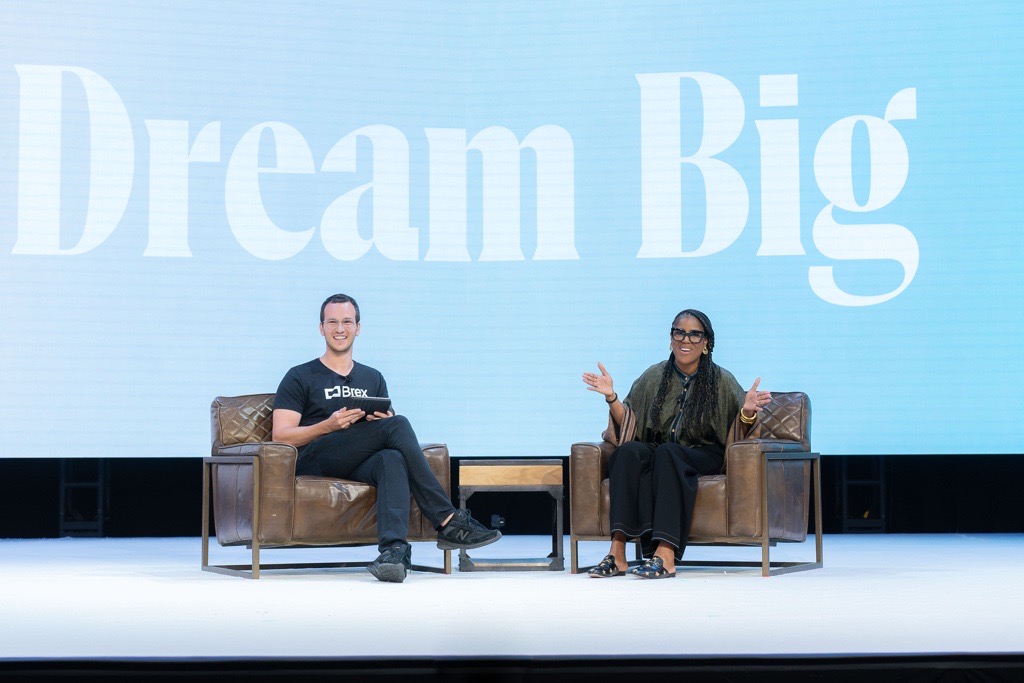How 26-Year-Old Founders of Brex Shaped a Billion-Dollar Fintech Empire
Modern business practices are being advanced by inventive companies. Retail outlets are primarily online brands, restaurants have transformed into cloud kitchens that sell through delivery apps, and large corporations are automating procedures, digitizing data, and operating internationally. They are breaking the mold, doing things differently, and creating new avenues.
Companies have undergone significant transformation, but banks have not. Future firms will operate more like startups, and banks are unable to create what is required. They require goods that support their new way of thinking and keep them active in order to reach their full potential.
Brex “jumped in the game” for that reason. In 2017, Henrique Dubugras and Pedro Franceschi, two accomplished entrepreneurs who formed Pagar.me, one of the biggest payment processing businesses in Brazil, founded the business.
Growing businesses can manage their finances and marketing efforts with the aid of Brex, an all-in-one financial. Companies can use the system for payments, cost reductions, and ratings of financial intelligence.
In just five years, Brex has developed into a financial operating system for businesses of all sizes, fusing credit cards, company cash accounts, spend management, and bill pay software.
The business received $300 million in a Series D-2 round announced in October 2021, to bring its valuation to $12.3 billion, and it appointed a former Meta executive as its new chief product officer. In April, Brex acquired Pry Financials — a financial planning software startup backed by YC — for $90 million.
Y Combinator, DST Global, Kleiner Perkins, Peter Thiel and Max Levchin (co-founders of PayPal), Ribbit Capital, and Barclays Bank are just a few of its famous backers. Barclays Bank also sponsored another $100 million loan round in April 2019 for the company.
We can’t wait to delve deeper into the success’s backstory to learn what it required to create this fintech from scratch, including all of its technology. To understand how Brex “rocks the stage,” we will examine this company from a variety of angles.
Dropping Out of College to Chase a Bigger Dream
When Dubugras and Franceschi started at Stanford, they discovered “it wasn’t as fun as we were expecting,” Dubugras says. “You know, we’d already been running a company, having an adult life, and it was kind of hard to go from that to college. So, we were like, ‘OK, let’s start another company.’”
Dubugras and Franceschi left Stanford after just eight months and joined the start-up accelerator Y Combinator with the intention of establishing a brand-new business with a virtual reality focus.
“We thought, ‘Look, we learned payments without knowing anything, I think we can learn VR,’” Dubugras says. “Then we started it and we just felt like, ‘We have no idea what we’re doing.’”
They pivoted back to their comfort zone — payments — after noticing that a lot of early stage start-ups were having trouble getting corporate credit cards. With Brex, however, Dubugras and Franceschi made the decision to ignore credit history and instead concentrate on startups that have obtained funding from investors, issuing them high-limit charge cards without requesting a personal guarantee from the founders.
By establishing card restrictions for each client that are directly correlated to the amount of money in that client’s business bank account, Brex reduces its own risk. Additionally, it retains the ability to access a customer’s credit line.
When Brex debuted in January 2017, Dubugras and Franceschi were about 20 years old. Before the original Brex office opened on Market Street in San Francisco, the business was first run out of a residence Dubugras shared with two roommates. He described the Market Street location as “very small” and “very cheap.”

Until recently, the company had 60,593 square feet of office space in San Francisco’s SoMa district, but Brex gave up its lease and the company is moving toward a remote workplace, as Dubugras and Franceschi themselves have moved to Los Angeles for warmer weather and to encourage their employees to go remote.
Brex was valued at more than $1 billion a year after its founding thanks to significant early investments, which included $50 million from Y Combinator and another $125 million from a partnership headed by investment companies Greenoaks Capital and DST Global.
Dubugras says it was much easier for Brex to raise money because of the success he and Franceschi had already experienced with Pagar.me. And there were lessons learned. For instance, according to Dubugras, they primarily hired their friends—teenagers and other people with little business experience at Pagar.me.
With Brex, “we hired people who had gone through something so we can learn from them,” Dubugras says, including its CFO, Michael Tannenbaum, formerly the chief revenue officer at fellow fintech start-up SoFi.
Puzzling Out Classic “Headache” with Ground-Breaking Solution
A great product is always the secret to a company’s success. The product must actually offer users value in order to be considered more than just an average commercial item. Let’s dig deeper into how Brex built its product to help its customers be more productive.
The company’s founders quickly learned how challenging it is to obtain finance from conventional banks or even just business accounts. What was initially a virtual reality corporation quickly changed into a business credit card and then a digital bank.
They set out to provide cards to startups by considering the amount of money raised, revenue, and cash balance rather than only looking at their credit scores (as traditional banks do).
Brex stands out since they use these indicators while determining a company’s eligibility for their card.
This fintech will consider how much cash an applicant has on hand. Also, they will concentrate on the applicant’s revenue if the candidate runs out of money because it has to buy goods so frequently. The review team at Brex will examine credit reports if the company has no sales and hasn’t raised any money.
It’s clear to you now. You could acquire a business card if you can claim at least one of these characteristics.
In this method, companies could obtain a business credit card from a business that is aware of their situation. Most crucially, they wouldn’t have to personally guarantee any debt that has been loaded on the card that they are unable to pay back.
Brex was unique in putting all of these efforts to benefit users and draw in new ones. Startups began to apply in large numbers, and the business added hundreds of new hires to keep up with the expansion.
The financial business had 1,100+ employees, and experienced 100% year-over-year growth as of 2021.
This makes it extremely attractive to investors, and for that reason, Brex has no problem getting hundreds of millions of dollars from investment at a time at ever-growing valuations.
Brex, though, has a lot of potential for other reasons. Previously, the company is working to transition from interchange fees to recurring revenue model from software subscriptions as of 2022.
The ‘Determined Move’ to Drop Small Business Customers as Silicon Valley Adjusts to New Reality

In June, San Francisco-based Brex informed tens of thousands of small business clients it would no longer serve them because the company was opting instead to focus on bigger, venture-backed startups. Brex referred to the decision as a “difficult decision” in a press coverage, citing the glaringly different needs of small businesses and scalable startups.
The decision is the latest illustration of how start-ups are undergoing a fundamental transition as a result of a sudden change in market dynamics. This is driving businesses that were previously only growth-oriented to adopt new approaches. The shift began late last year, when the shares of high-flying publicly traded fintech players such as PayPal began to collapse.
Dubugras said that he and his co-founder Pedro Franceschi took the decision in December 2021 as their start-up clients became increasingly demanding. Plunging public company valuations soon spread to the private sector, crushing pre-IPO company valuations and compelling businesses to concentrate on profitability.
As a result, several of Brex’s largest clients started asking for solutions to assist them manage costs and hire less expensive foreign staff, according to Dubugras.
At the same time, the traditional brick-and-mortar small businesses, including retailers and restaurants, that Brex began adding in a 2019 expansion flooded support lines, resulting in worse service for the start-ups they valued more, he said.
“We got to a situation where we realized that if we didn’t choose one, we would do a poor job for both” groups of clients, he said. “So we decided to focus on our core customer that are the start-ups that are growing.”
Brex consumers were highly confused when the announcement first leaked, leading Franceschi to tweet about the decision, according to Dubugras.
According to him, Brex is keeping hold of clients who have received institutional backing of any type, such as from accelerator programs, angel investors, or Web 3.0 tokens. Additionally, they are preserving well-established businesses that Brex classifies as midmarket in size since they have “more financial history so we can underwrite them for our credit card,” according to Dubugras.
The two young co-founders, Stanford University dropouts who made waves in Silicon Valley by founding Brex, saw the transition as their most recent learning experience.
The pair mistakenly thought that expanding services to more traditional small businesses would be a simple move. Instead, he claimed that the demands of the two cohorts were different, demanding a separate set of products.
“We built Brex with 20 people, so we thought, why can’t we just build a different Brex with another 20 people?” Dubugras said. “I learned that focus is extremely important; that’s definitely a lesson I’m going to take with me forever.”
While business leaders have recently issued economic warnings, the decision wasn’t made out of concern that small businesses might not pay their corporate cards, according to the co-founder. Because most SMB entities had to pay back their cards on a regular basis, there was little chance that Brex wouldn’t be repaid, according to him.
“It’s terrible. It’s the worst outcome for us, too,” Dubugras said. “We invested so much money in acquiring these customers, serving them, building the brand, all these things.”
Brex & Steps Beyond a Well-Valued Unicorn
Brex has been gradually expanding its collaborations with startup aggregators like Y Combinator and AngelList over time. According to its most recent release, it signed a new agreement with Techstars, a Boulder-based startup accelerator.
Henrique Dubugras, the CEO and co-founder of Brex, compared the strategy of his business to that of Stripe, saying that “if you can grab companies at the inception, you operate like a venture investor.” The Brex platform support staff, a sign-up incentive for its program, supper club dinners, and other unique events are now available to Techstars accelerator businesses.

Additionally, businesses will get free access to Pry, Brex’s platform for financial forecasting and scenario planning that it just purchased for $90 million. Companies will only be able to use the service for the three months of the accelerator program.
Thus, as part of this transaction, the corporate spending company is bringing on generations of present and future accelerator batch entrepreneurs from all around the world. Dubugras acknowledges that it’s a customer acquisition play with the prospect of possible upside, even though it might boost the number of users.
“If you look at Brex’s cost of acquisition to get a startup; if they fail at Series A, we lose money when looking at how much revenue is generated for us versus how much it cost to acquire the customer,” Dubugras explained. “If the startup gets to Series B or Series D, we make a lot of money.”
Brex said in April that it was shifting its focus away from early-stage startups in favor of the late-stage companies or enterprise segment. This makes the decision sound different now. Sure enough, Dubugras did say that Brex is picky about who it works with. “It only makes sense because some of the startups do graduate and become larger companies…we don’t partner with any accelerator because if they don’t have a track record of delivering good companies, maybe it’s a nonprofit relationship.”
Although it’s more of a long-term strategy, partnerships also help Brex gain an advantage against rivals like the well-funded and formidable Ramp, and some of the recent new players into the corporate credit card market like Stripe and Rippling. After all, fintech businesses are constantly seeking out stickier strategies to maintain client interest. 80% of Y Combinator businesses currently utilize Brex; we’ll see if Techstars adopt the same proportion.
Bottom Lines
Brex has taken an innovative approach to qualifying the businesses. The utilization of artificial intelligence and machine learning to process thousands of transactions of the business rather than basing a decision on credit worthiness and other traditional factors. This encourages a world where everything is mechanicalized and easy to access and manage. Brex’s been doing amazing things to build up the company by bringing out real value to the industry. It’s not bragging to see Brex as a typical example of a leading firm in this decade.








